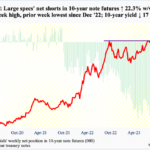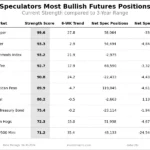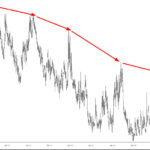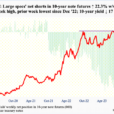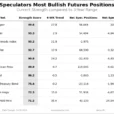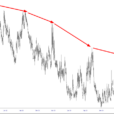
The options market is still complicated.
Last week I wrote a post about the extent to which the options market does not give money away for free, citing a possible straddle on Nvidia (NVDA) that an investor could have sold on Thursday for $20 and been immediately underwater on Friday after the company’s earnings report.
Then sure enough, right on cue, a hedge fund built on selling options on commodities got blown up (the money is all gone) by what the manager called a rogue wave. The title of this post pays homage to the episode of South Park from the financial crisis when Kyle took his savings to the bank, the banker put it into some sort of derivative and the money disappeared while Kyle was sitting there as follows;
Josh Brown delves in deeper toward the end of this post if you want more color. Someone else tweeted out (I think it was Nassim Taleb) that blows always come from picking up nickels. Of course, the quote refers to the saying about picking up nickels in front of a steamroller. That saying is about understanding the risk taken with a particular trade. The so-called Vixmageddon from this past February is a potential example of picking up nickels at least for the last couple of months or so that shorting the VIX was a popular trade.
I promise you there will be blowups like this in the future. It seems to be a behavioral thing where investors come along and think they can outsmart the options market. That is not a bet that too many people should make. If you want to buy a call or a put as a speculation, go ahead, but you should expect a zero sum outcome. I can’t say that it is the wrong thing for you to do but not something I have ever done for clients and can’t see ever doing that.
Some investors like to sell covered calls. The upside is bringing extra income, the downside is giving away any price appreciation above the strike price of the option sold. It would pretty difficult to have a catastrophic outcome from selling a covered call options. Any catastrophe would be related to the stock imploding, giving away all the price appreciation isn’t really a catastrophe in the context of permanently impairing your capital. Selling a covered put is not something that I can recall ever having seen first hand; if an investor is short a stock and then sells a put it would be considered covered. A popular trade is to sell naked puts that are cash secured. Meaning if you sell one put at a strike price of $50 you have $5000 set aside. It can generate a nice income on cash unless the stock trading at $55, drops to $30 and you have to buy it at $50. Less popular is selling a naked call option. If you sell a call and the price of the underlying drops you keep the premium and that’s it. If the stock goes up past the strike, you sell at the strike price, maybe $50 and then might have to buy at $55 or $60 or wherever and you lose that difference.




